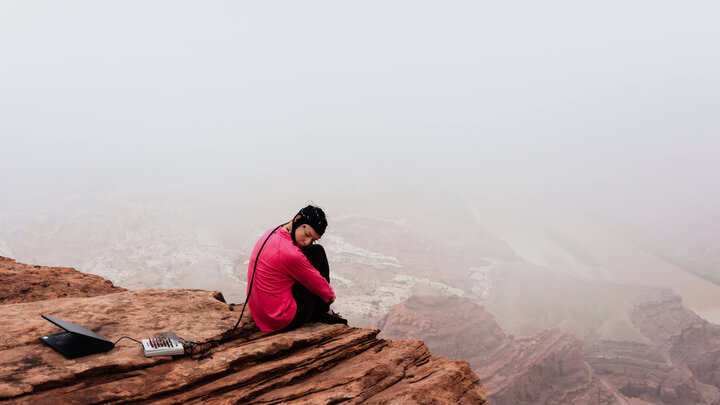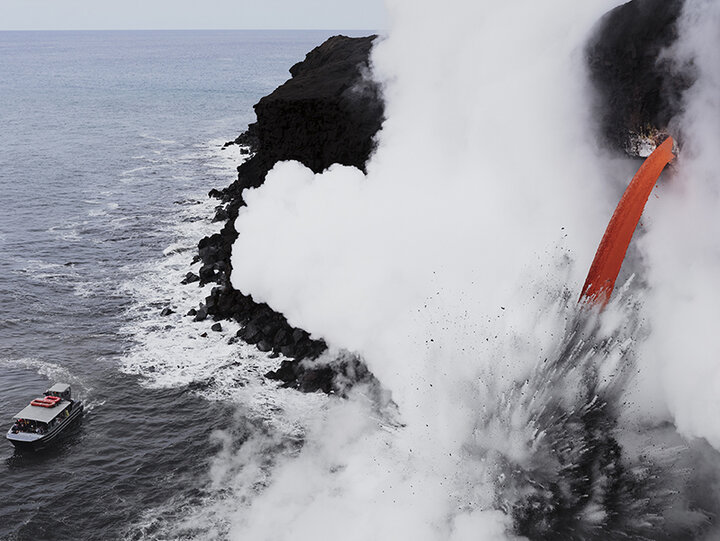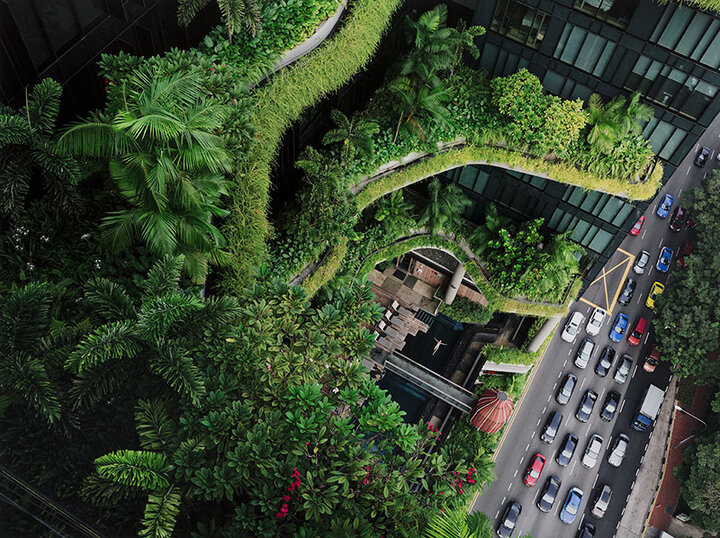
Lucas Foglia has photographed organizations, industries, and intentional communities that bring people into contact with nature. The complex relationships humans have with the natural world are evident through his images of the labor of agricultural workers, climate scientists, landscape architects, neuroscientists researching the beneficial effects of spending time outside, and others.
These photographs are part of Foglia’s series Human Nature that captures landscapes from melting glaciers to luscious gardens thriving in urban spaces. Foglia began the series in 2006, but was compelled to take a deeper look in 2012 after Hurricane Sandy affected his family farm located outside of New York City. He notes, “On the news, I heard scientists blame the storm on climate change caused by human activity. I realized that if humans are changing the weather, then there is no place on Earth unaltered by people. . . . Human Nature focuses on our current relationship with nature, on how we need wild places even if they have been shaped by us.”


born Long Island, NY 1983
Kate in an EEG Study of Cognition in the Wild, Strayer Lab, University of Utah, Utah (at top)
Pigment print, 2015
Lava Boat Tour, Hawaii
Pigment print, 2017
Esme Swimming, Parkroyal on Pickering, Singapore
Pigment print, 2014
34 × 44 inches, each
Sheldon Museum of Art, University of Nebraska–Lincoln, Robert E. Schweser and Fern Beardsley Schweser Acquisition Fund through the University of Nebraska Foundation, U-6765.2018